07年高考英语复习情态动词课件
合集下载
高考英语专题复习之~~~情态动词.ppt
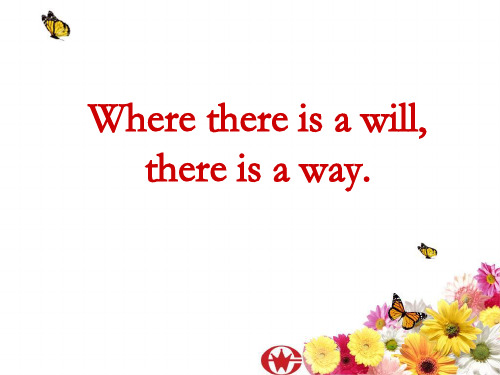
• I'll do my best to catch up with them.
• He said he would help me. • will, would用于疑问句表,客气。
• It's hot. Will you open the windows? • Would you like some coffee?
• 情态动词无人称和数的变化, 情态动词后面 跟的动词需用原形,否定式构成是在情态动 词后面加 “not”。 个别情态动词有现在式 和过去式两种形式, 过去式用来表达更加客 气, 委婉的语气, 时态性不强, 可用于过去, 现在或将来。
• He could be here soon.
• 他很快就来。
Where there is a will, there is a way.
情态动词
情态动词是一种本身有一定的词义, 表示说话人的情绪,态度或语气的动词, 但不能单独作谓语, 只能和其他动词原形构成谓语。 We can be there on time tomorrow. 我们明天能按时去那儿。
May I have your name? 我能知道你的名字吗?
• Do you need a dictionary?
• dare 敢 多用在否定或疑问句中。
• The little girl dare not speak in public.
• Dare you catch the little cat? • dare 除用作情态动词外,更多的是当实义动词
使用, 用法同实义动词一样,要考虑人称,单复 数,时态等。
• 半情态 need, dare (dared), used to, had better, woud rather
• He said he would help me. • will, would用于疑问句表,客气。
• It's hot. Will you open the windows? • Would you like some coffee?
• 情态动词无人称和数的变化, 情态动词后面 跟的动词需用原形,否定式构成是在情态动 词后面加 “not”。 个别情态动词有现在式 和过去式两种形式, 过去式用来表达更加客 气, 委婉的语气, 时态性不强, 可用于过去, 现在或将来。
• He could be here soon.
• 他很快就来。
Where there is a will, there is a way.
情态动词
情态动词是一种本身有一定的词义, 表示说话人的情绪,态度或语气的动词, 但不能单独作谓语, 只能和其他动词原形构成谓语。 We can be there on time tomorrow. 我们明天能按时去那儿。
May I have your name? 我能知道你的名字吗?
• Do you need a dictionary?
• dare 敢 多用在否定或疑问句中。
• The little girl dare not speak in public.
• Dare you catch the little cat? • dare 除用作情态动词外,更多的是当实义动词
使用, 用法同实义动词一样,要考虑人称,单复 数,时态等。
• 半情态 need, dare (dared), used to, had better, woud rather
高考英语复习情态动词课件

提高实践
在实际英语交流中多加练习,提高运用情态动词的能力。
情态动词的特点
情态动词有一些特殊的语法规则和用法,我们将在接下来的内容中进行详细介绍。
情态动词的形式
1 情态动词的基本形式
情态动词只有一种基本形式,不受人称和数的变化。
2 情态动词加“to”的形式
有时情态动词可以与“to”连用,构成不定式形式。
3 情态动词的否Biblioteka 与疑问形式情态动词的否定形式是在情态动词前加“not”,疑问形式是将情态动词调到句首。
练习题三
根据上下文,选择适当的情态动 词填入空白处:He ________ be at home. His car is parked outside.
总结与展望
复习情态动词
通过本课件的学习,我们对情态动词的概述、形式、用法和意义有了更深入的了解。
练习巩固
继续复习情态动词,做更多的练习题来巩固所学内容。
高考英语复习情态动词课 件
欢迎来到高考英语复习情态动词课件!通过本课件,我们将深入探讨情态动 词的概述、形式、用法、意义、句式,并提供练习题进行复习。让我们开始 吧!
情态动词的概述
什么是情态动词?
情态动词是一类能够表示说话人态度、能力、愿望、推测等的特殊动词。
常见的情态动词
常见的情态动词包括can、could、may、might、will、would、shall、should、must等。
情态动词的用法
表达能力和许可
情态动词可以用于表达能力、许 可及禁止的意义,以及提出请求 和给予建议。
表达推测和可能性
情态动词常用于表达推测、可能 性和推测过去的情况。
表达判断和义务
情态动词也可以用于表达判断、 义务和必要性,以及表示主观态 度和情感。
在实际英语交流中多加练习,提高运用情态动词的能力。
情态动词的特点
情态动词有一些特殊的语法规则和用法,我们将在接下来的内容中进行详细介绍。
情态动词的形式
1 情态动词的基本形式
情态动词只有一种基本形式,不受人称和数的变化。
2 情态动词加“to”的形式
有时情态动词可以与“to”连用,构成不定式形式。
3 情态动词的否Biblioteka 与疑问形式情态动词的否定形式是在情态动词前加“not”,疑问形式是将情态动词调到句首。
练习题三
根据上下文,选择适当的情态动 词填入空白处:He ________ be at home. His car is parked outside.
总结与展望
复习情态动词
通过本课件的学习,我们对情态动词的概述、形式、用法和意义有了更深入的了解。
练习巩固
继续复习情态动词,做更多的练习题来巩固所学内容。
高考英语复习情态动词课 件
欢迎来到高考英语复习情态动词课件!通过本课件,我们将深入探讨情态动 词的概述、形式、用法、意义、句式,并提供练习题进行复习。让我们开始 吧!
情态动词的概述
什么是情态动词?
情态动词是一类能够表示说话人态度、能力、愿望、推测等的特殊动词。
常见的情态动词
常见的情态动词包括can、could、may、might、will、would、shall、should、must等。
情态动词的用法
表达能力和许可
情态动词可以用于表达能力、许 可及禁止的意义,以及提出请求 和给予建议。
表达推测和可能性
情态动词常用于表达推测、可能 性和推测过去的情况。
表达判断和义务
情态动词也可以用于表达判断、 义务和必要性,以及表示主观态 度和情感。
【高中语法复习】情态动词(共48张PPT)
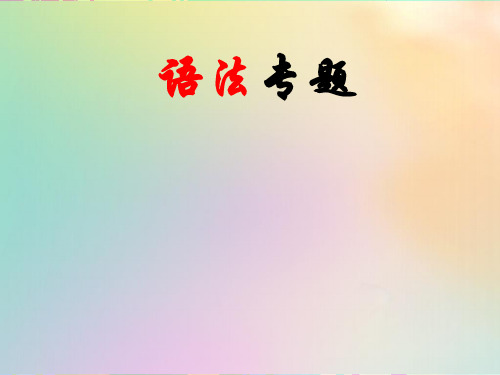
need to do
need do
Need 的回答
Need I come here tomorrow ? Yes, you must.
No, you needn’t. / you don’t have to.
Johnny, you ____ play with the knife, or you ____ hurt yourself.
猜测
--Oh my god ! Can it be true ? --It can’t be ture.
常用词组积累 can not/ never…too; can’t…enough
can’t help doing
无论怎么…都不过分 禁不住;不由得
I could have worked out the question, but I was too nervous.(过去有能力做但未做)
I must take care of my hairstyle.
must 的回答
-不用mustn’t回答-
Must I go to school today?
Yes,you must !
No, you don’t have to. /needn’t. /had better not.
You mustn’t bully your brother. He must have seen the answer.
时态 单复数 肯定变否定
提问
3
情感和态度
can
could may
might must should
情态动词 情态实意
must, can, could, may, might, ought stohall, should, will, would
need do
Need 的回答
Need I come here tomorrow ? Yes, you must.
No, you needn’t. / you don’t have to.
Johnny, you ____ play with the knife, or you ____ hurt yourself.
猜测
--Oh my god ! Can it be true ? --It can’t be ture.
常用词组积累 can not/ never…too; can’t…enough
can’t help doing
无论怎么…都不过分 禁不住;不由得
I could have worked out the question, but I was too nervous.(过去有能力做但未做)
I must take care of my hairstyle.
must 的回答
-不用mustn’t回答-
Must I go to school today?
Yes,you must !
No, you don’t have to. /needn’t. /had better not.
You mustn’t bully your brother. He must have seen the answer.
时态 单复数 肯定变否定
提问
3
情感和态度
can
could may
might must should
情态动词 情态实意
must, can, could, may, might, ought stohall, should, will, would
高考英语语法一轮复习情态动词优质PPT课件
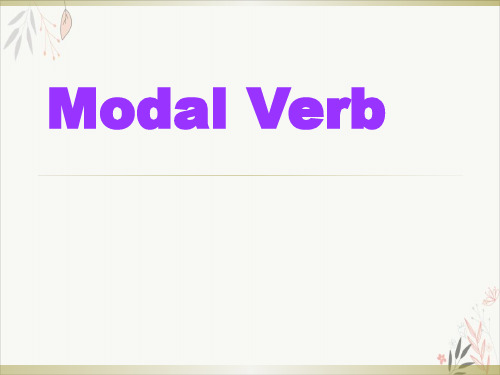
说话人给对方的命令、警告、允诺或威胁。
You shall do as I say.按我说的做(命令) He shall be sorry for it one day, I tell you. 我告诉你,总有一天他会后悔的(警告) Nothing shall stop us from carrying the plan. 什么也阻止不了我们执行这个计划(决心) I shall do my homework after reading this stroy book.
home yet. 如果玛丽五点才离开这儿,她此时一定 还未到家
2.必须(表示命令或者强烈的建议)
eg: You must get up early. 你必须早起来。
You must stop smoking if you want to be healthy.
• 表示必须、必要。 在回答引出的问句时,如果是否定的,不能用 mustn’t(禁止,不准),而用needn’t, don’t have to(不必). ---- Must we hand in our exercise books today? ---- Yes, you must. ---- No, you don’t have to / you needn’t.
Ability: 1 He can speak English now.
能力 2 He couldn’t speak English a
year ago.
Permission: All passengers may now board.
允许
We can board now.
Obligation: You must fasten your seat belts. 义务 (strong) You should pay attention. (weak) You ought to pay attention.
You shall do as I say.按我说的做(命令) He shall be sorry for it one day, I tell you. 我告诉你,总有一天他会后悔的(警告) Nothing shall stop us from carrying the plan. 什么也阻止不了我们执行这个计划(决心) I shall do my homework after reading this stroy book.
home yet. 如果玛丽五点才离开这儿,她此时一定 还未到家
2.必须(表示命令或者强烈的建议)
eg: You must get up early. 你必须早起来。
You must stop smoking if you want to be healthy.
• 表示必须、必要。 在回答引出的问句时,如果是否定的,不能用 mustn’t(禁止,不准),而用needn’t, don’t have to(不必). ---- Must we hand in our exercise books today? ---- Yes, you must. ---- No, you don’t have to / you needn’t.
Ability: 1 He can speak English now.
能力 2 He couldn’t speak English a
year ago.
Permission: All passengers may now board.
允许
We can board now.
Obligation: You must fasten your seat belts. 义务 (strong) You should pay attention. (weak) You ought to pay attention.
高三英语新高考复习优秀PPT情态动词课件

【名校课堂】获奖PPT-高三英语新高 考复习 课件第 七章情 态动词 课件( 最新版 本)推 荐
【名校课堂】获奖PPT-高三英语新高 考复习 课件第 七章情 态动词 课件( 最新版 本)推 荐
Would you like me to carry it for you? 我帮你拿这个好吗?(委婉) Would you please not sing so loudly? 你能别唱这么大声吗?(委婉的否定)
【名校课堂】获奖PPT-高三英语新高 考复习 课件第 七章情 态动词 课件( 最新版 本)推 荐
【名校课堂】获奖PPT-高三英语新高 考复习 课件第 七章情 态动词 课件( 最新版 本)推 荐
疑问句中可用can/could(能) 表示推测。如: Could he have finished his task? 他能完成任务吗?
第七章 情态动词
知识梳理
一、概念及分类 1. 情态动词+动词原形 情态动词表示说话人对有关行为或事物的态度及看法, 认为其可能、 应该或必要等, 不能单独作谓语, 只能和其他动词原形一起作谓语。 2. 情态动词有四类 ①只作情态动词: must, can(could), may(might), ought to ②可作情态动词, 又可作实义动词: need, dare ③可作情态动词, 又可作助动词: shall(should), will(would)
【名校课堂】获奖PPT-高三英语新高 考复习 课件第 七章情 态动词 课件( 最新版 本)推 荐
【名校课堂】获奖PPT-高三英语新高 考复习 课件第 七章情 态动词 课件( 最新版 本)推 荐
(4)dare作为情态动词, 后面直接加动词原形, 无人称和数的变化, 不 受时态的影响。 主要用于疑问句、否定句及条件状语从句中。 如: Dare you go home alone? 你敢一个人回家吗? She dare not say what she thinks. 她不敢说出她的想法。 No one dare speak of it. 没有人敢谈这件事。
【名校课堂】获奖PPT-高三英语新高 考复习 课件第 七章情 态动词 课件( 最新版 本)推 荐
Would you like me to carry it for you? 我帮你拿这个好吗?(委婉) Would you please not sing so loudly? 你能别唱这么大声吗?(委婉的否定)
【名校课堂】获奖PPT-高三英语新高 考复习 课件第 七章情 态动词 课件( 最新版 本)推 荐
【名校课堂】获奖PPT-高三英语新高 考复习 课件第 七章情 态动词 课件( 最新版 本)推 荐
疑问句中可用can/could(能) 表示推测。如: Could he have finished his task? 他能完成任务吗?
第七章 情态动词
知识梳理
一、概念及分类 1. 情态动词+动词原形 情态动词表示说话人对有关行为或事物的态度及看法, 认为其可能、 应该或必要等, 不能单独作谓语, 只能和其他动词原形一起作谓语。 2. 情态动词有四类 ①只作情态动词: must, can(could), may(might), ought to ②可作情态动词, 又可作实义动词: need, dare ③可作情态动词, 又可作助动词: shall(should), will(would)
【名校课堂】获奖PPT-高三英语新高 考复习 课件第 七章情 态动词 课件( 最新版 本)推 荐
【名校课堂】获奖PPT-高三英语新高 考复习 课件第 七章情 态动词 课件( 最新版 本)推 荐
(4)dare作为情态动词, 后面直接加动词原形, 无人称和数的变化, 不 受时态的影响。 主要用于疑问句、否定句及条件状语从句中。 如: Dare you go home alone? 你敢一个人回家吗? She dare not say what she thinks. 她不敢说出她的想法。 No one dare speak of it. 没有人敢谈这件事。
【高考】英语语法完全讲解情态动词ppt课件

can/could have done“过去本能够做某事,实际上并 没有做”。 You could have done better, but you didn’t try your best.
may/might have done“过去也许已经做过某事”,否 定形式may/might not have done表示“过去可能没做 过某事”;might have done还表示“过去本可能做某 事,实际没有做”。 It’s too late. I think he may have gone to bed. He may/might not have finished the work. But I think you might have told us half an hour ago.
--Yes, you can/may(No, you can’t/mustn’t). 2、shall在疑问句中与第一人称连用时,表示征求对方意见; 情态动词can和could常用来表示“能力”,强调能够做某事,can表示现在的能力,could表示过去的能力。
He dared not look at her in the face. You could have done better, but you didn’t try your best.
2.中国应对全球化的政策
Tom’s father promises 44、关于(爱)这个字眼,又有几人能读懂能将其看透。
:北方地区
that
he
shall
buy
his
son
a
new bike on his birthday.
第四大类:表示必要、偏要
must表示主观上必须做某事,mustn't表示“禁止、一定不可 以”,还可以表示“偏偏、偏要”,have to表示受客观条件的 限制,不得不做某事。should表示应该做某事,有义务做某事, 此外,should还可以表示“竟然、居然”。 Children mustn’t play with fire. She must do anything against her parents’ will. You should go and visit him this afternoon. It is unbelievable that the poor man should help others. Why should you be so late today? --Must I work out the problem tonight? --No, you needn’t/don’t have to.
高中英语《情态动词》ppt课件
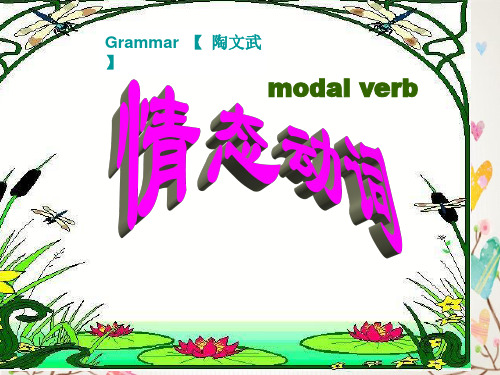
表示推测——情态动词的重要用法.
情态动词
对将来
肯定的推测
+ V.
must 常见must be
对现在
对过去
+ V.
+ have done
+ be doing
可能的推测
may!! might
否定的推测
can’t!! couldn’t
疑问的推测
can!! could
+ V.
+ V.
+ have done
三.Must +have done 表示对过去发生的事情作出的肯 定判断
它们在玩篮球!! 它们一定完成了作业??
They are playing basketball!! they must have finished their homework. 路是湿的??昨天晚上一定下雨了??
The road is wet. It must have rained last night.
She couldn’t have been at home.
三. can/could have done “本可以!!本来可能已经”用 于肯定句中!!表示对过去发生的事情做出的判断!!
您本来可以考的更好?? You could have had a better mark.
may/might
一.May/might表示推测时!!只能用于陈述句!!表示对现 在或将来要发生的动作把握不大?? 它们明天可能会到这里来??
It can’t be true! I don’t believe it.
When you are quite sure about something!! you
高考英语情态动词复习要点课件

注意:在回答以may引导的问句时,一般说来避免使用may,以免显得太严厉、或不太客气,而改用其他方式。例如: --May I come in ? --Yes , please .请进。 我可以进来吗? --Sure . / Certainly . .请进。 --Please don't . .请不要进来。 --No , you mustn't .不行。 3.must 应该,必须,一定 1) 表示出于职责、义务该做某事 We must protect people's rights .我们应该保护人民的利益。 Everyone must be loyal to his motherland . 每个人都应该忠于自己的祖国。
2)表示客观上的可能性 You can borrow this useful book from the library . 你可以从图书馆借到这种有用的书。 Now people can skate on the lake .现在人们可以在湖上滑冰了。 When the storm stopped , the plane could take off . 当风暴停下来时,飞机可以起飞了不得。 3)表示主观上的允许 Can I ask you some questions about it ? 我可以问你有关这件事的几个问题吗? You can not leave here till I come back .直到我回来你
2)命令 You shall come to my office immediately She shall not stay in my garden .。 3)决心(表示某事一定会发生) That day shall come .那一天一定会到来。 It has been decided that he shall be given the job . 4)规定 Each competitor shall wear a number .每个参赛者要佩戴一个数字标。 The renter shall keep the house in a neat and orderly state . 租赁者要保持房屋整洁有序。
2)表示客观上的可能性 You can borrow this useful book from the library . 你可以从图书馆借到这种有用的书。 Now people can skate on the lake .现在人们可以在湖上滑冰了。 When the storm stopped , the plane could take off . 当风暴停下来时,飞机可以起飞了不得。 3)表示主观上的允许 Can I ask you some questions about it ? 我可以问你有关这件事的几个问题吗? You can not leave here till I come back .直到我回来你
2)命令 You shall come to my office immediately She shall not stay in my garden .。 3)决心(表示某事一定会发生) That day shall come .那一天一定会到来。 It has been decided that he shall be given the job . 4)规定 Each competitor shall wear a number .每个参赛者要佩戴一个数字标。 The renter shall keep the house in a neat and orderly state . 租赁者要保持房屋整洁有序。
高考英语情态动词课件(共21张PPT)
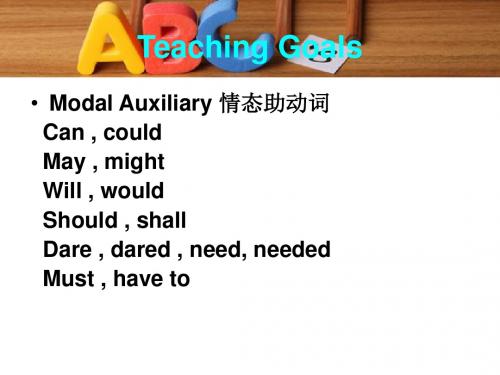
He shall get his money.
5)Should 表示说话人的惊奇、愤怒、失望等特殊情感 It’s surprising that Mary should love such a person as Jack. It’s strange that … It’s unthinkable that … I’m sorry that…
肯定疑问 Dare we run? 句
Do we dare (to) run?
否定疑问 Dare he not run? Doesn’t he dare to run ? 句
Need, needed
Need /needed
1、情态动词用于否定句,疑问句 He needn’t worry about it.
This will be the house you're looking for .
Will , would
5)would常用于虚拟条件句,表示与事实相反或不太可能实现的情况 But for your help we would have been late .
6) Would 表示过去的习惯性动作或某人的一典型动作,又使人厌烦的感 觉。 He would go swimming in summer when he was in the countryside.
3.表示请求和允许,与may同义,相当于be allowed to.常用语口语中。 You can smoke in this room. Could I borrow you dictionary?
Can , could
4.用于一些固定句型 a. Cannot ( can never) …too…怎么也不过分
如询问某种可能时,应用can。 He must know my address. (一定) He can’t know my address. (一定不) Can he know my address? (询问可能性)
5)Should 表示说话人的惊奇、愤怒、失望等特殊情感 It’s surprising that Mary should love such a person as Jack. It’s strange that … It’s unthinkable that … I’m sorry that…
肯定疑问 Dare we run? 句
Do we dare (to) run?
否定疑问 Dare he not run? Doesn’t he dare to run ? 句
Need, needed
Need /needed
1、情态动词用于否定句,疑问句 He needn’t worry about it.
This will be the house you're looking for .
Will , would
5)would常用于虚拟条件句,表示与事实相反或不太可能实现的情况 But for your help we would have been late .
6) Would 表示过去的习惯性动作或某人的一典型动作,又使人厌烦的感 觉。 He would go swimming in summer when he was in the countryside.
3.表示请求和允许,与may同义,相当于be allowed to.常用语口语中。 You can smoke in this room. Could I borrow you dictionary?
Can , could
4.用于一些固定句型 a. Cannot ( can never) …too…怎么也不过分
如询问某种可能时,应用can。 He must know my address. (一定) He can’t know my address. (一定不) Can he know my address? (询问可能性)
高考英语总复习:情态动词 课件

would
2.6 用法
“不得不;必须”,强调因 客观原因而不得不做某事 I have to look after my sister when my parents are out.
have to
2.6 用法
表示建议,意为“最好” We'd better stay at home because it is raining heavily outside.
发挥学科组集体备考的优势,学科组内任务分解、责任到人,每次考一考一研”,新老教师步 调一致,节奏有序,充分发挥分工协作的集体教研智慧。
三是找准学科增分点 认真研究本省、本市、本校近年来的高考数据,细化到每一个知识点的得
失分情况,找准突破点和增分点,有目的进行专项训练和突破提升。英语的阅 读理解和小作文、语文的古文分析和作文、理科的做题速度、文科的答题思路 等,都要制定详细的训练方案和突破的方法策略,在实践中调整提升,打破制 约瓶颈,找到质量提升的突破口。
二、课堂教学务必高效
课堂是教育教学是主阵地。高三年级教学时间紧,教学任务重,更要切实发挥 课堂40分钟的作用。一是上好微专题课。春节前后,一轮复习进入后期,学生 不会的知识点逐步浮出水面。这些薄弱知识点如果解决不好,将直接影响到二 轮复习的效果。高三年级要围绕浮现出来的问题,上好微专题或微微专题课, 针对某一个点或几个点精讲、讲透,触类旁通。微专题课怎么上?可以针对学 生不会的问题,每节课重点解决1-2个知识点,专题强调,专点训练,不贪多, 顺一个点“追祖宗八代”,剖析透!微微专题,则更精、更准、更小、更有效,可 以一节课只讲一道题,但是要把这一道题挖深、挖透,讲透一个会一类,做会 一题能举一反三。
表示客气的请求或提议,常 用于第二人称的疑问句中 Will you hand me the dictionary?
高考英语一轮复习——情态动词七大考点课件(共37张PPT)

1.作为情态动词用,常用在否定句和疑问句中。 疑问句:Dare (need) +主语 +动词原形 否定句:主语 + daren’t (needn’t) +动词原形
I daren’t walk through the forest at night. Dare you walk through the forest at night? You needn’t return the book now. Need he go yesterday?
4. 情态动词短语的使用:
Can’t /couldn’t …… too …… Can’t /couldn’t ……enough Can’t help doing Can’t help do May/might as well do
would like/love to do… would rather do…
4. He would rather to die than to give in. He would rather die than give in.
5. You’d better to have your hair cut today. You’d better have ...
5 可兼做行为动词的情态动词:need 、 dare
2.dare,need作实义动词用,用于肯定,否定, 疑问句,有人称、时态、和数的变化,后+ to do。 He dares to go there by himself. He has grown up,we don’t need (to )worry about him.
3.Sth need( want, require)+ doing/ to be done The house needs cleaning/ to be cleaned The boy needs sending to the hospital at once.
I daren’t walk through the forest at night. Dare you walk through the forest at night? You needn’t return the book now. Need he go yesterday?
4. 情态动词短语的使用:
Can’t /couldn’t …… too …… Can’t /couldn’t ……enough Can’t help doing Can’t help do May/might as well do
would like/love to do… would rather do…
4. He would rather to die than to give in. He would rather die than give in.
5. You’d better to have your hair cut today. You’d better have ...
5 可兼做行为动词的情态动词:need 、 dare
2.dare,need作实义动词用,用于肯定,否定, 疑问句,有人称、时态、和数的变化,后+ to do。 He dares to go there by himself. He has grown up,we don’t need (to )worry about him.
3.Sth need( want, require)+ doing/ to be done The house needs cleaning/ to be cleaned The boy needs sending to the hospital at once.
高考英语一轮复习之情态动词课件

1,常规用法
dare need
(1)dare做情态动词用时,常用于疑问句、否定句和条件从句中,过去 式为dared。
How dare you say I’m unfair? (2)need做情态动词用时,常用于疑问句、否定句。在肯定回答时一般 用must,否定回答时用needn’t
Need I finish the work today? Yes, you must./ No, you needn’t.
1,常规用法
Ought to
(1)ought to 意为“应该,应当”,没有人称和数的变化。Ought to的 否定形式为ought not to或oughtn’t to,其一般疑问句形式是将ought置于主 语前。多数情况下,ought to 可与should 互换使用。
Ought I to go?
Could I go to see you tomorrow? Yes,you can./No,I’m afraid not.
1,常规用法 may, might
(1)表示请求和允许。
might比may语气更委婉,而不是过去式。肯定回答要用can和may来 代替could 或might。否定回答用can’t或mustn’t,表示“不可以,禁止”
(2)should表示“应该”,在疑问句中常用should代替ought to。 “should+have+过去分词”表示“本应该在过去做但没有做” 表示吃惊,作“居然,竟然”讲
Shall he come in now?
You shall fail if you don’t work hard.
You should help him because he is in trouble.
相关主题
- 1、下载文档前请自行甄别文档内容的完整性,平台不提供额外的编辑、内容补充、找答案等附加服务。
- 2、"仅部分预览"的文档,不可在线预览部分如存在完整性等问题,可反馈申请退款(可完整预览的文档不适用该条件!)。
- 3、如文档侵犯您的权益,请联系客服反馈,我们会尽快为您处理(人工客服工作时间:9:00-18:30)。
策划:《学生双语报》
18
4.should/ought to have done表示责备或 批评,意为“本应该做到…但没有做到…”,用 于否定则表示“本不该…但”ought to的语 气更强烈. You should/ought to have told her the truth earlier. She shouldn’t have left without saying a word.
策划:《学生双语报》 12
3.might/may have done,表示对过去发生的动作进行 可能性推测, 他可能去医务室了。 He may have gone to the clinic. 他可能已经从报纸上知道这个消息了。
He might have read about the news in the newspaper.
策划:《学生双语报》
13
4)May 表示许可,表示允许别人做某事, 也
可征求对方的许可。
May I open the door? We may keep the book for two weeks. 5) 用于祈使句,表示祝愿。 May you succeed! May you have a nice trip!
策划:《学生双语报》 22
Complete the following sentences with proper modal verbs.
must • 1) You’ve been working all day. You ______ be very tired. • 2) (The door bell rings)I wonder who that is, it________ be Lisa. can’t She’s still in the library at this time. should • 3) It is a long time since we met last time. You ________ come and see us more often. • 4) I haven’t decided where I’m going for my holidays. I ______ go to may Australia. shall • 5) My father’s birthday is coming. What ________ I get him? • 6) Why don’t you try on this dress? It__________ look nice on you. will • 7) “Who was the man talking with your teacher?” “I’m not sure. It ___________ be her brother. might • 8) I don’t know when the guests ___________ be here. They will could __________ arrive at any time.
It can’t be Mary. She has fallen ill.
她不可能在说谎。 She couldn’t be telling lies.
策划:《学生双语报》 8
在疑问句中 Could 比can 更有礼貌,在此不 是can的过去式。 Can you wait a moment please? Liz, can you do me a favor? Excuse me, could you tell me the way to
策划:《学生双语报》
10
3. can/could have done “本可以,本来可能已经”用 于肯定句中,表示对过去发生的事情做出的判断, 你本来可以考的更好。 You could have had a better mark.
may/might
1.May/might表示推测时,只能用于陈述句,表示对现 在或将来要发生的动作把握不大。 她们明天可能会到这里来。
策划:《学生双语报》 16
2. should 的用法
a. should 用于表达合理推断。
It is three o’clock, the football game should begin
now. Mary took dancing lessons for years, she should be an excellent dancer. 注意:should可表示“居然,竟然”。 I can‟t believe such a gentleman should be so rude to the old. 我不敢相信这样一个绅士居然对老人如此无礼。
策划:《学生双语报》 6
Although the soldier was badly wounded, he was able to tell what had happened. 表示过去的能力
3.表示特定的某一过去能力或表示成功地做了某 事时,只能用was/were able to, 不能用could。
He was able to flee Europe before the war broke out. He was able to swim before he got tired.
策划:《学生双语报》 7
can/could
1. can /could 表示推测时,只能用在否定句或疑问句 中。 It’s so late. Can Tom be reading? Can it be Mr. Green? 这个人不可能是玛丽, 她生病了。
策划:《学生双语报》
4
3.Must +have done 表示对过去发生的事情作出的肯定 判断 他们在玩篮球, 他们一定完成了作业。
They are playing basketball, they must have finished their homework. 路是湿的。昨天晚上一定下雨了。
策划:《学生双语报》
19
must 和have to
1.Must用于一般问句中,肯定回答用must 否定式用 needn’t或don’t have to, 做 “不必”,mustn’t表示“禁止,不允许” — Must I finish all assignments at a time? —Yes, you must.
策划:《学生双语报》
2
Must , can/could, may/might 的用法
must 1.Must 表示推测时, 只能用于肯定句。 这个电脑肯定出了问题。 There must be something wrong with the computer. 你努力学了一整天, 一定累了吧 You have worked hard all day. You must be tired. 注意:Must用于肯定句中可表示“偏偏”。 Naturally, after I told her what to do, my daughter must go and do the opposite. 自然地,在我交代女儿做什么之后,她偏偏要做 3 策划:《学生双语报》 相反的事情
策划:《学生双语报》 21
need /dare
a. need 表需要和必须常用于否定句和疑 问句,needn’t have done “本不必做…”
b. dare 表敢,常用于否定句,疑问句和条件 句中。 c. dare与need 用做实意动词时有时态, 人称和数的变化,但dare用于否定句和疑问 句时常接不带to的不定式,need后要接带to 的不定式。
The road is wet. It must have rained last night.
策划:《学生双语报》
5Байду номын сангаас
can, could 和be able to的用法
1.can, be able to都可表示“能力” Can的主语是人或物,be able to的主语是人 She can/be able to sing the song in English. This machine can make you feel comfortable. 2.can只用于现在时和过去时(could)。 be able to可以用于各种时态。 We’ll be able to finish the work soon. I haven’t been able to see the film. could用于表示泛指过去的能力。如: I could read when I was four.
They may come here tomorrow.
策划:《学生双语报》 11
他们可能还在等我们呢。 They may be still waiting for us.
2.might 可用于指过去的行为或者表示可能性更小。
他也许在作功课吧。 He might be doing his homework now. 我问他我是否可以离开。 I asked him if I might leave. I asked him “May I leave now?”
Grammar ( 32ms )
modal verb
策划:《学生双语报》
1
情态动词有一定的意义,但没有人称和数的 变化,不能独立使用,它和后面的动词构成 谓语. 只作情态动词的 can/could, may/might, ought to, must 可情态可实义的 need, dare/dared 可情态可助动词的 shall/should, will/would 相当于情态动词的 have to, used to
策划:《学生双语报》 14
will/would
Will /Would you do…? (表请求would 更委婉) 表意志,愿望,决心 would表过去反复发生得动作或某种倾向 “总是,总要” used to表过去常常(现在已没有这种习惯) “过去常常” used to 可于状态动词连用 would不可以 eg. He used to be a quiet boy. ( √ ) He would be a quiet boy. ( × )
